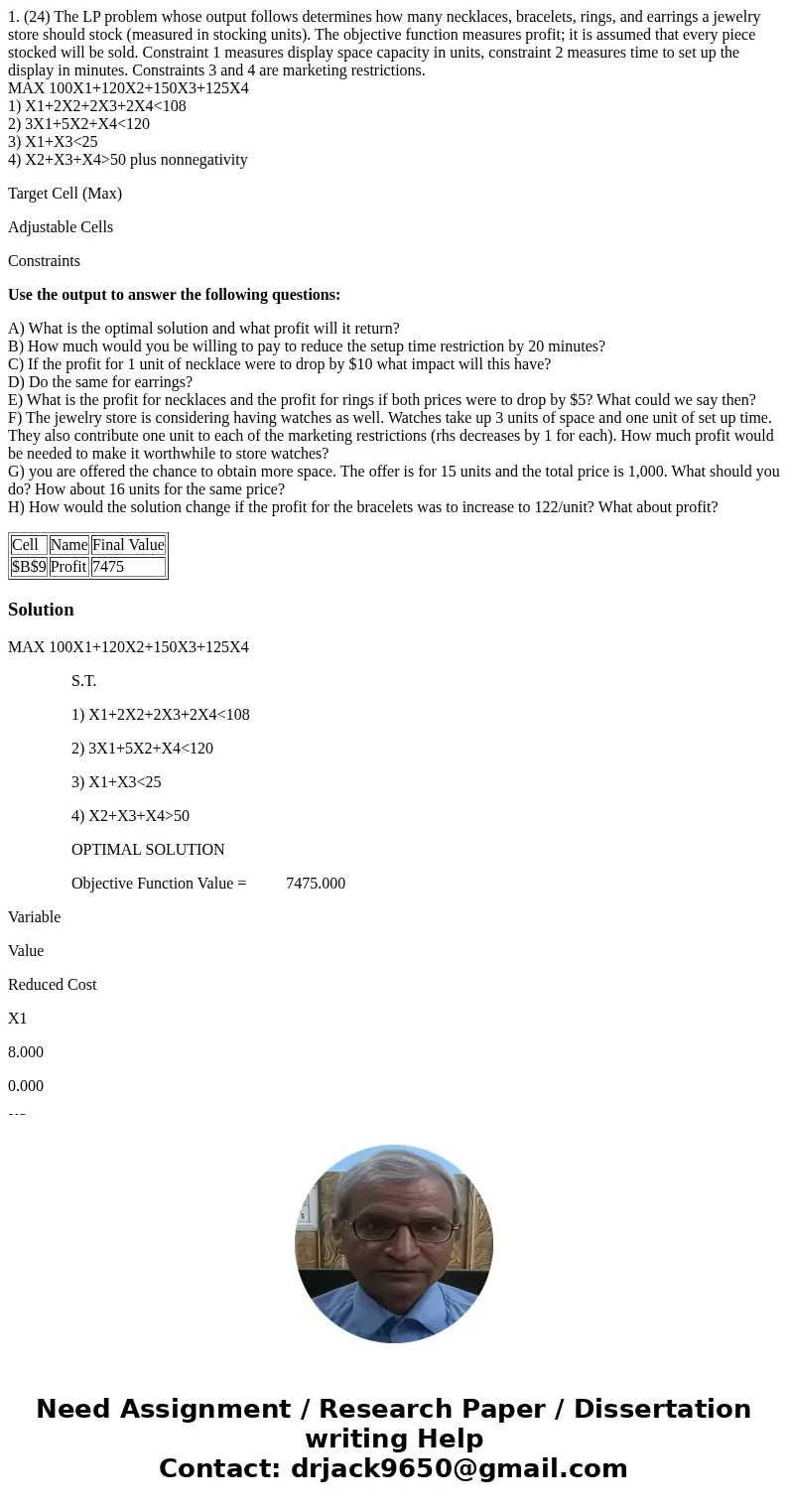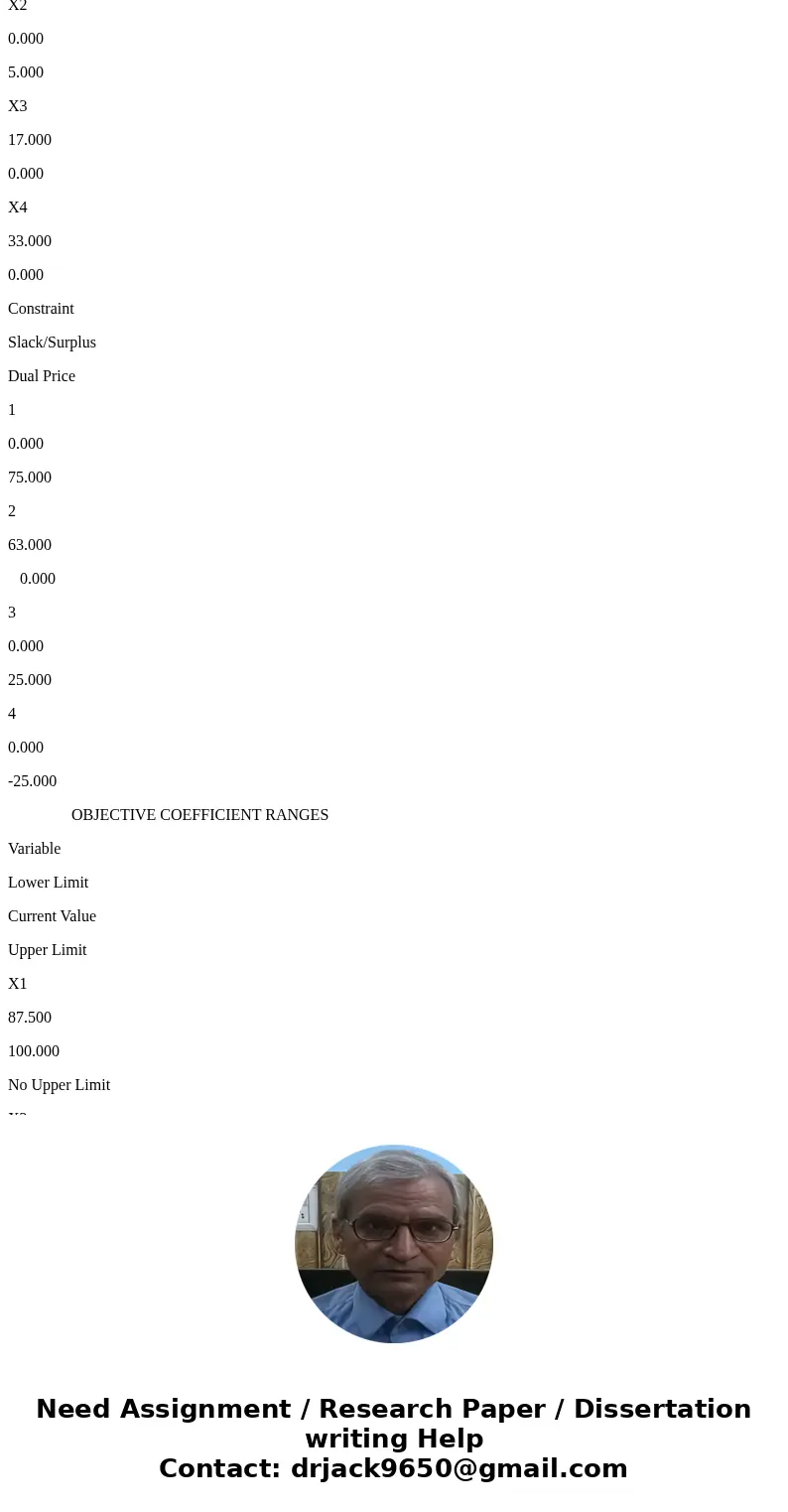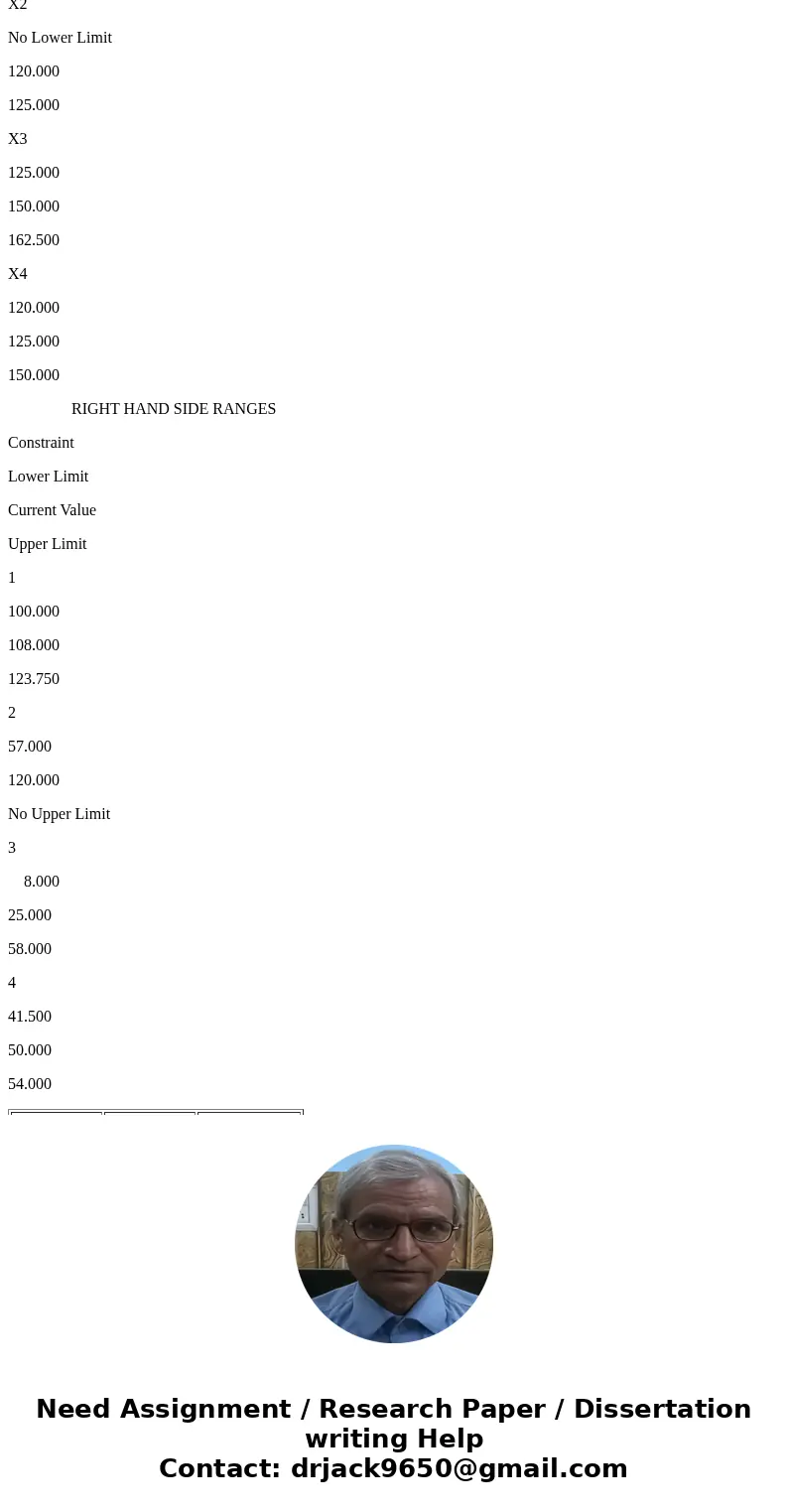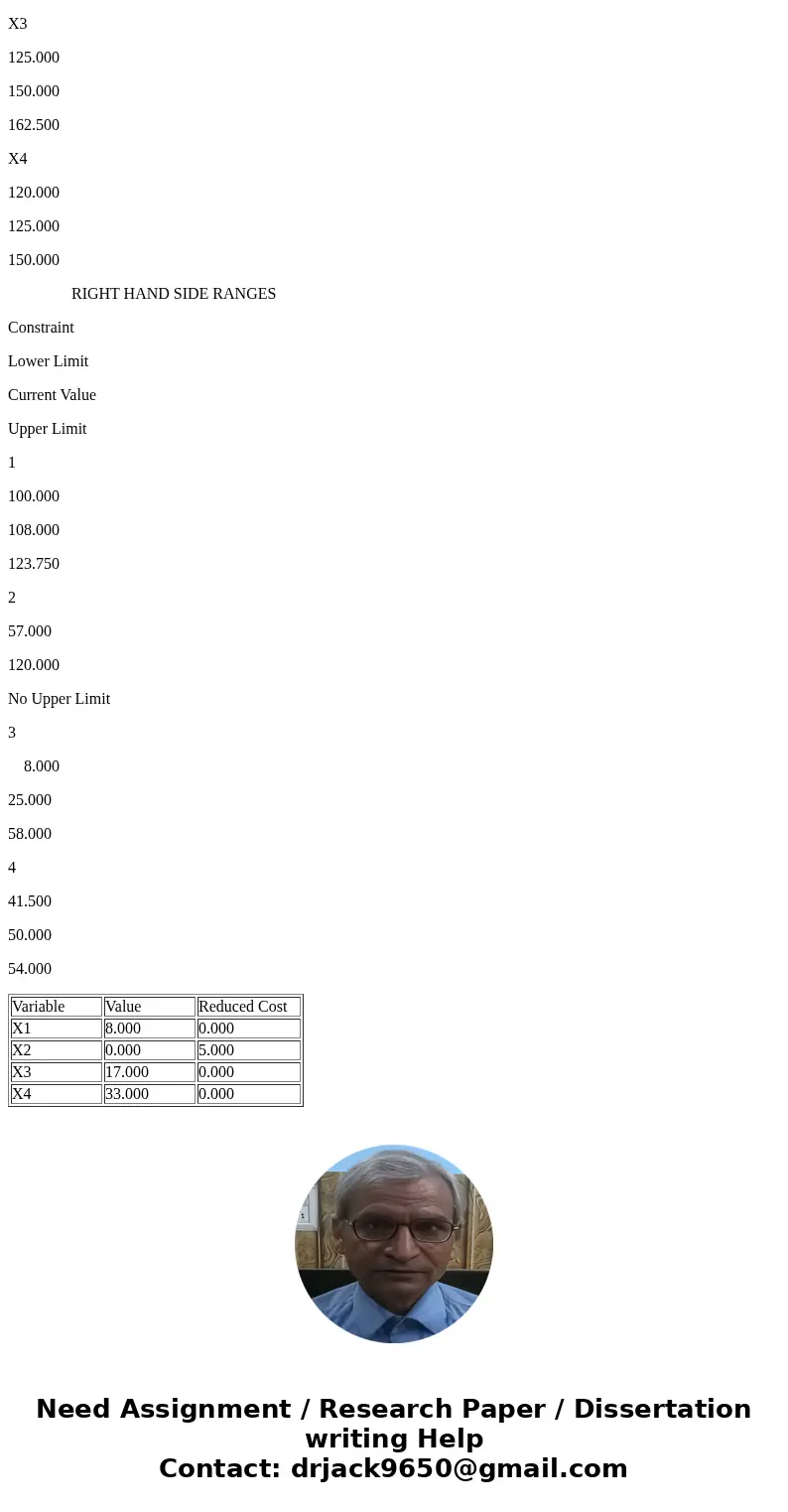1 24 The LP problem whose output follows determines how many
1. (24) The LP problem whose output follows determines how many necklaces, bracelets, rings, and earrings a jewelry store should stock (measured in stocking units). The objective function measures profit; it is assumed that every piece stocked will be sold. Constraint 1 measures display space capacity in units, constraint 2 measures time to set up the display in minutes. Constraints 3 and 4 are marketing restrictions.
MAX 100X1+120X2+150X3+125X4
1) X1+2X2+2X3+2X4<108
2) 3X1+5X2+X4<120
3) X1+X3<25
4) X2+X3+X4>50 plus nonnegativity
Target Cell (Max)
Adjustable Cells
Constraints
Use the output to answer the following questions:
A) What is the optimal solution and what profit will it return?
B) How much would you be willing to pay to reduce the setup time restriction by 20 minutes?
C) If the profit for 1 unit of necklace were to drop by $10 what impact will this have?
D) Do the same for earrings?
E) What is the profit for necklaces and the profit for rings if both prices were to drop by $5? What could we say then?
F) The jewelry store is considering having watches as well. Watches take up 3 units of space and one unit of set up time. They also contribute one unit to each of the marketing restrictions (rhs decreases by 1 for each). How much profit would be needed to make it worthwhile to store watches?
G) you are offered the chance to obtain more space. The offer is for 15 units and the total price is 1,000. What should you do? How about 16 units for the same price?
H) How would the solution change if the profit for the bracelets was to increase to 122/unit? What about profit?
| Cell | Name | Final Value |
| $B$9 | Profit | 7475 |
Solution
MAX 100X1+120X2+150X3+125X4
S.T.
1) X1+2X2+2X3+2X4<108
2) 3X1+5X2+X4<120
3) X1+X3<25
4) X2+X3+X4>50
OPTIMAL SOLUTION
Objective Function Value = 7475.000
Variable
Value
Reduced Cost
X1
8.000
0.000
X2
0.000
5.000
X3
17.000
0.000
X4
33.000
0.000
Constraint
Slack/Surplus
Dual Price
1
0.000
75.000
2
63.000
0.000
3
0.000
25.000
4
0.000
-25.000
OBJECTIVE COEFFICIENT RANGES
Variable
Lower Limit
Current Value
Upper Limit
X1
87.500
100.000
No Upper Limit
X2
No Lower Limit
120.000
125.000
X3
125.000
150.000
162.500
X4
120.000
125.000
150.000
RIGHT HAND SIDE RANGES
Constraint
Lower Limit
Current Value
Upper Limit
1
100.000
108.000
123.750
2
57.000
120.000
No Upper Limit
3
8.000
25.000
58.000
4
41.500
50.000
54.000
| Variable | Value | Reduced Cost |
| X1 | 8.000 | 0.000 |
| X2 | 0.000 | 5.000 |
| X3 | 17.000 | 0.000 |
| X4 | 33.000 | 0.000 |




 Homework Sourse
Homework Sourse